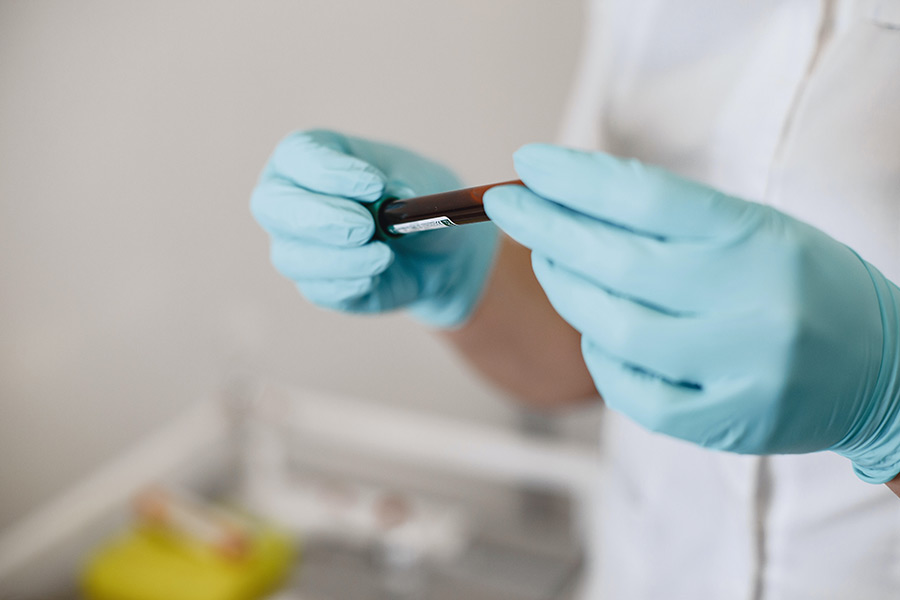Liquid biopsies, or the collection of biofluids (e.g. blood or urine) for biomarker analysis, have become routine test methods for many cancers. These biopsies typically analyze cell-free DNA (cfDNA) to determine if any of it is being shed from a tumor (circulating tumor DNA [ctDNA]). The characterization of ctDNA with liquid biopsies is useful to determine response to therapy or risk of recurrence. Since ctDNA is a mere fraction of the total cfDNA present in biofluids, it is important to verify that detected variants are exclusively due to cancer, and not related to other diseases or conditions. Therefore, developing liquid biopsy assays requires careful consideration of many parameters. It is crucial that the biospecimens collected for assay development are appropriate for use.
Liquid biopsy ctDNA assays can be largely divided into two main categories: tumor informed or fixed panel. Tumor informed assays start with genomic analysis of the tissue sample to identify a set of unique gene variants specific to an individual tumor. Each set of variants is used in a personalized, patient-specific, liquid biopsy assay. Due to the nature of tumor-informed assays, it is imperative that sample collection is for paired tissue and biofluids.
Fixed panel liquid biopsy assays do not require initial analysis of a tissue sample, and the set of gene variants used to analyze ctDNA levels in biofluids stay constant for every individual per tumor type. A large panel of variants is used to maximize the chance that at least some variants will be present in any given patient’s tumor.
When developing and validating fixed panel assays for a specific use, paired tissue and biofluid samples taken from the same patient in close temporal proximity to one another, are important to understanding the specificity and sensitivity of the fixed panel assay. Knowing if a detected variant truly derives from the tumor can help determine potential false positives for the assay (specificity). Likewise, if a variant identified in the tissue sample is not detected in the biofluid, the sensitivity of the assay may need to improve to limit false negatives.
Custom prospective sample collections designed to collect tumor tissue and biofluids from subjects in a specific indication are ideal for developing and validating liquid biopsy assays. BioAI can support prospective sample collections with up to 40ml of whole blood (roughly 20ml of plasma) from each subject, with matched FFPE tissue, and other biofluids such as urine. These studies take less than a month to initiate, and a typical collection of 20 samples can be completed in 2-4 months (indication dependent).
Learn more about our biorepository services and our new biospecimen offerings.
References:
https://www.ncbi.nlm.nih.gov/pmc/articles/PMC10152452/
https://www.ncbi.nlm.nih.gov/pmc/articles/PMC9390824/

